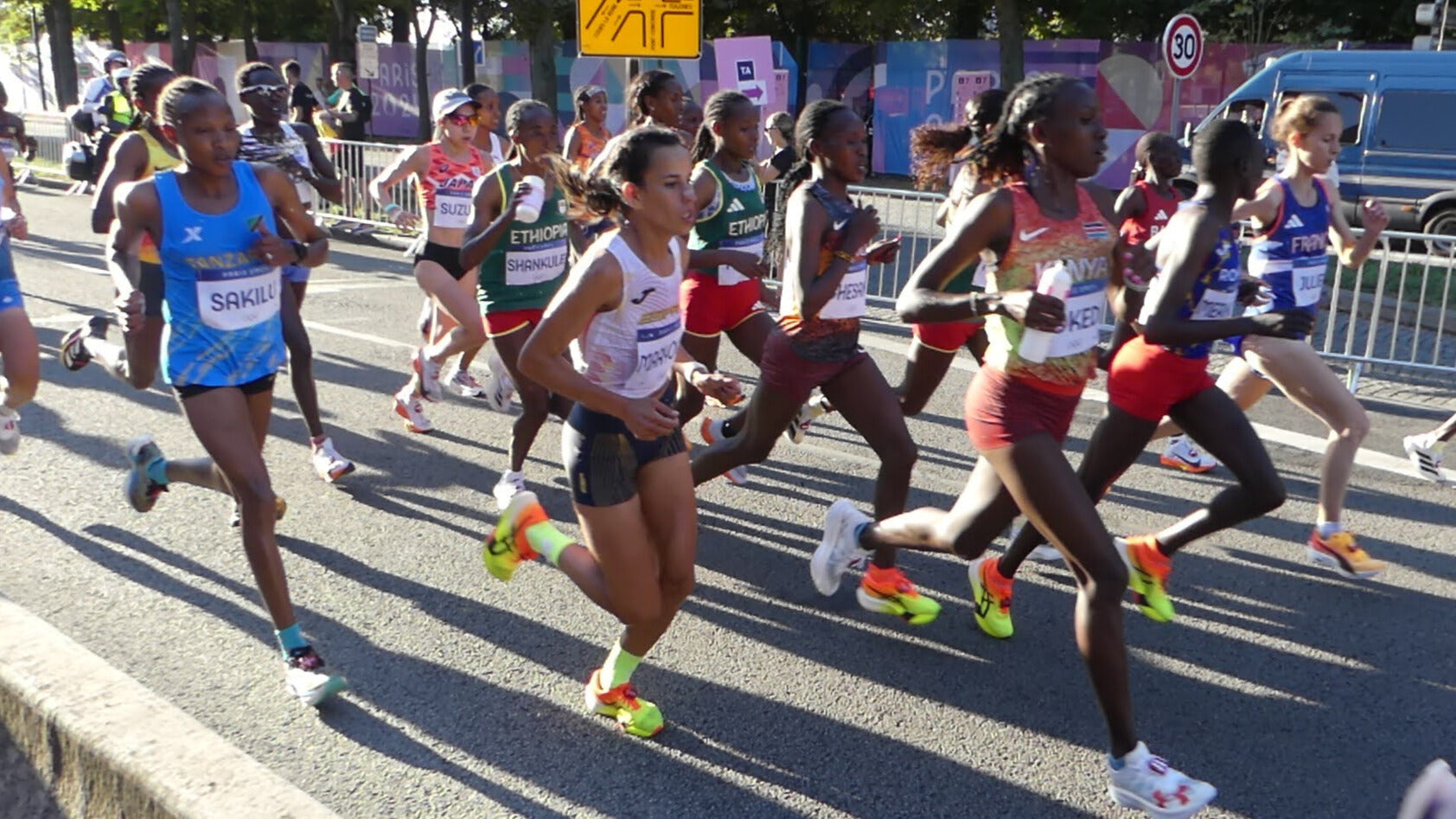
How to avoid the famous Marathon wall?
The wall is the bane of marathon runners. It is the moment when the race can become a real ordeal, when the time objectives of the day disappear forever and when the last kilometers become interminable and are anything but a pleasure. The wall is often the combination of a drop in energy intake (glycogen reserves being almost empty), muscular fatigue (normal after 30 or 35 kilometers) and a blow to morale (which ends up in the socks).
So, how do you avoid this famous Marathon wall? I have run almost twenty marathons and yes, of course I have hit this famous wall a certain number of times, but I have also experienced Marathons almost without any drop in performance and in any case without hitting the wall. Even in an IronMan format, that is to say by running a Marathon after swimming almost 4 kilometers and cycling 180 kilometers in a row, I managed to avoid this famous wall, while I had started the Marathon with reserves already well depleted by the 3.8 km of swimming and the 180 km of cycling. So it is entirely possible, but one thing is certain, it cannot be improvised.
So here are 10 key tips to avoid the famous Marathon wall:
1. Take care of your diet
Food is your source of energy. It is therefore essential to take care of it throughout your preparation and in particular at three key moments: the last days, the last hours before the race and during the race. It is recommended to eat between 6 and 12 grams of carbohydrates per kilogram of body weight during the last two days before the marathon (between 360 and 720 grams for a 60 kg runner). In the early morning before the race 2 or 3 hours before the start, you can plan on between 2 and 4 grams of carbohydrates per kilogram of body weight, or an additional 120 to 240 grams for the same 60 kg runner. Finally, plan to consume between 30 and 60 grams of carbohydrates per hour of running, or between 120 and 240 grams for a runner aiming for 4 hours of running.
2. Hydrate yourself 'to perfection'
The first reason for a potential drop in performance during the race will be a hydration deficit well before a nutrition deficit, especially if it is likely to be hot during your Marathon (over 20 degrees Celsius). Hydration plays a vital role since it allows perspiration to play its key role in regulating body temperature. It is therefore essential to stay perfectly hydrated throughout your race. Before the race, ideally drink a drink with electrolytes and during the race, drink every 15 or 20 minutes mechanically and in small sips. Above all, do not wait until you are thirsty.
3. Take care of your sleep and recovery
Throughout the preparation and especially the last week, it is key to ensure that you recover well and sleep well. A lack of sleep may be paid for in terms of fatigue. A good night's sleep is normally around 8 hours. If you manage to sleep well during the last week of preparation but not the last night, don't panic. It is normal to have a little stress before embarking on a Marathon. Also make sure to always have at least one weekly day of rest without any sport during your preparation phase and to follow the recovery phases of your training program.
4. Practice running tired or with low reserves
Once glycogen reserves are depleted, the body will seek energy from lipids (or fat). If you do long runs with few glycogen reserves, you will train your body to draw on lipids. Similarly, if you do a hill run the day before a long run (at a moderate pace), you will accustom your body to running with the fatigue of the day before. This can be useful to accustom your body to fatigue and to recognize sensations that you will likely have on the day after 30 kilometers of running. Of course, make sure to recover well from these sessions where you will run with a little fatigue from the day before.
5. Don’t neglect long runs
Running 20, 25 and up to 28-30 kilometers in a long run will bring you closer to the sensations you will have in the second half of the Marathon and especially during the last third. You will also make your body more enduring and push back the moment when accumulated fatigue begins to be felt. Try to run the last 3 or 4 kilometers of your long runs at Marathon pace to get used to running at this speed after several hours of running.
6. Work on strengthening the core and legs
A muscularly strengthened core and legs will delay the onset of fatigue on the day. Muscular legs and core help prevent unwanted movements and maintain an efficient stride. This is especially useful in the second half of the race when fatigue begins to build up to maintain a dynamic stride and good running position.
7. Print your Marathon pace
Consider frequently including a few kilometers run at marathon pace during your long runs. Be careful, however, not to be too ambitious and especially not to aim for too high a pace. Progress in running is a real school of patience. Real progress requires months, if not years of training. It is not a matter of a few weeks. Be patient. Training will eventually pay off.
8. Plan for sufficient weekly volume
There is no miracle. A higher weekly volume will allow you to become more enduring over the weeks. However, be careful not to confuse kilometer volume and training intensity. It is not so much about running fast more often and longer during the training phase, but above all about running slowly often enough and long enough. For good Marathon preparation, you should aim for a weekly cumulative total of more than 40-45 kilometers than a total of only 30 kilometers or less. A sufficient weekly cumulative total with good recovery management will delay the onset of fatigue on D-Day.
9. Get used to having difficult times
When you do long weekly runs, there will come a time when the sensations are not at their best. In these more difficult moments, you have to mentally prepare yourself to resist and suffer. The body is made in such a way that if hydration and nutrition are well managed during the race, it is possible to find a second wind even after a difficult moment. Having this experience during training helps on race day to be patient and grit your teeth in difficult moments, knowing that they are not insurmountable. However, you have to know how to listen to your body and if the sensations are really not good at all, you have to know how to slow down or stop. It is not about putting yourself in danger, but just learning mentally to continue running in a weak time.
10. Start slowly and maintain your target pace
This last piece of advice is perhaps the hardest to follow. Why? Because on race day, everything is done to push you to want to go fast from the start of the Marathon with the waiting in the starting pen, the impatience, the excitement and the collective emulation. Put yourself in your bubble and become a metronome. Start off calmly for the first few kilometers and take your cruising speed after these first few kilometers. You should only leave this cruising speed if everything is still going very well for the last three or five kilometers. The best Marathons are generally run in ' negative split' , that is to say that the second half-marathon is run faster than the first. Easy to say but very difficult to do.
In conclusion, the Marathon wall is far from being inevitable, but it is a scenario that many runners experience due to lack of appropriate training or because of overly ambitious goals with a target pace that is too high and that ends up being paid for at the end of the race. The most important thing is to finally prepare well (by following the advice above) and to know yourself well in order to choose goals that can be ambitious but must remain realistic in relation to each person's potential. In any case, I wish you an excellent Marathon from the first to the last kilometer without any walls on the course!



Leave a comment
This site is protected by hCaptcha and the hCaptcha Privacy Policy and Terms of Service apply.